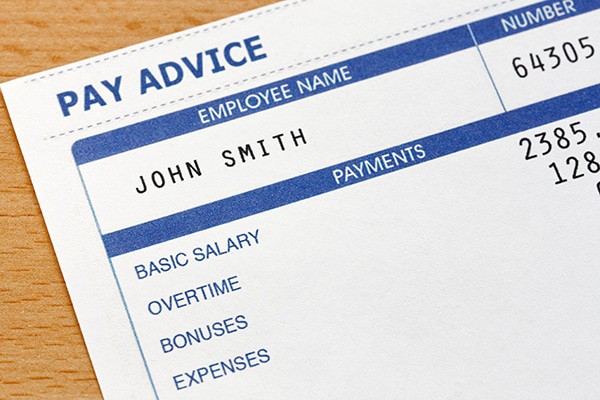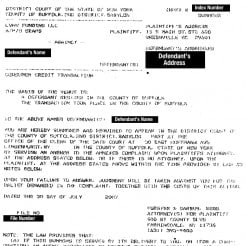 A monetary judgment issued by a court is an official decision that the defendant (you, the judgment debtor) owes an amount of money to the plaintiff (the judgment creditor: typically a credit card bank, lender, or collection agency). Once a judgment is entered against you in court, the judgment creditor can begin to take steps to restrain and seize your bank account, garnish your wages, assert a lien on your house if you are a homeowner, and seize other income. Until and unless a monetary judgment is issued by a court, however, a debt collector can only make phone calls and send letters, and enter negative information about the debt on your credit report. They cannot restrain your bank account or garnish your wages until you have had your day in court and they have won a judgment against you. They must sue you first.
A monetary judgment issued by a court is an official decision that the defendant (you, the judgment debtor) owes an amount of money to the plaintiff (the judgment creditor: typically a credit card bank, lender, or collection agency). Once a judgment is entered against you in court, the judgment creditor can begin to take steps to restrain and seize your bank account, garnish your wages, assert a lien on your house if you are a homeowner, and seize other income. Until and unless a monetary judgment is issued by a court, however, a debt collector can only make phone calls and send letters, and enter negative information about the debt on your credit report. They cannot restrain your bank account or garnish your wages until you have had your day in court and they have won a judgment against you. They must sue you first.
Often times, judgment debtors are surprised to find out a judgment has been entered against them, because they never received notice that they were being sued. This is usually due to “gutter service,” or the process server failing to properly serve you with the summons and complaint, the papers that notify you that you are being sued. Because you were never notified, you failed to appear in court to defend yourself, and a default judgment was entered against you.
It is typical for judgment debtors to first discover they have a judgment against them when their bank account is restrained (meaning, they no longer can withdraw funds from their accounts, and all charges and automatic payments will be declined), or when their employer notifies them that their paycheck will be garnished (which can be embarrassing for anyone). If this happens, you should immediately contact a consumer defense lawyer for a free consultation to discuss your particular situation.
It is also a good idea to periodically check to see if a judgment has been entered against you. One of the first steps is to order a copy of your credit report through the three major credit reporting agencies, or credit bureaus. It is important to order a copy of your credit report from all three, as some judgment creditors only subscribe – and therefore only report – to one or two. The three major credit bureaus are:
TransUnion; and
In addition, depending on the County you live in, you may be able to check with the county clerk’s office, either in person, or if the service is offered, online, and see if a judgment has been entered against you in the county where you live.
For example, if you live in Suffolk County, New York, you can visit the Suffolk County Clerk’s Office (click “Accept,” then, from the “Searches” drop-down menu, click “Judgments”). Enter your last name, then your first name, and then click “Search.” Hopefully no records will be found. But if a judgment was entered against you, it is valid for up to 20 years, during which time it will accrue a great deal of interest. At any time over the course of those 20 years, the judgment creditor can decide to enforce the judgment. Rather than wondering when the judgment creditor will act, take steps to vacate your judgment and defend yourself against the claims of the creditor.





